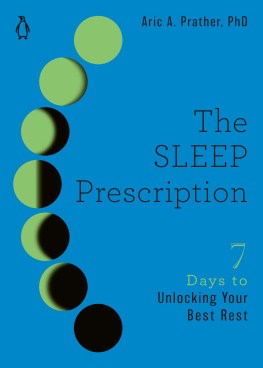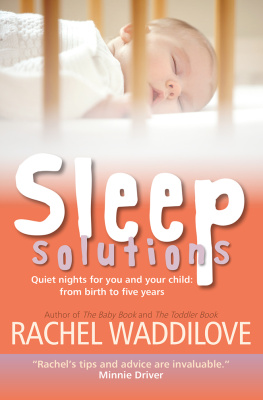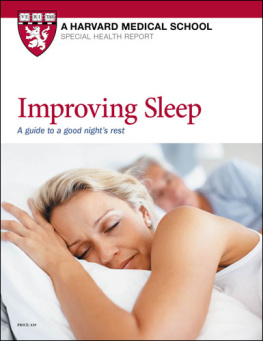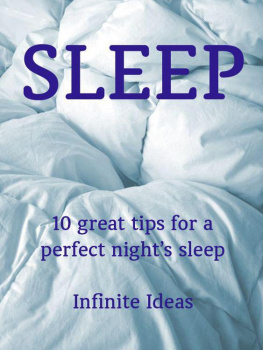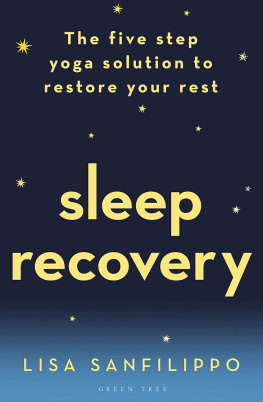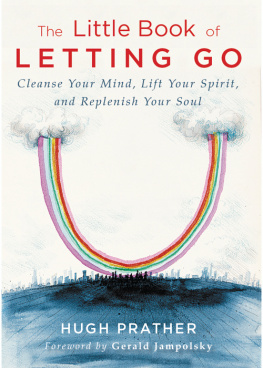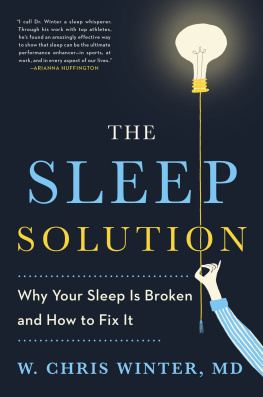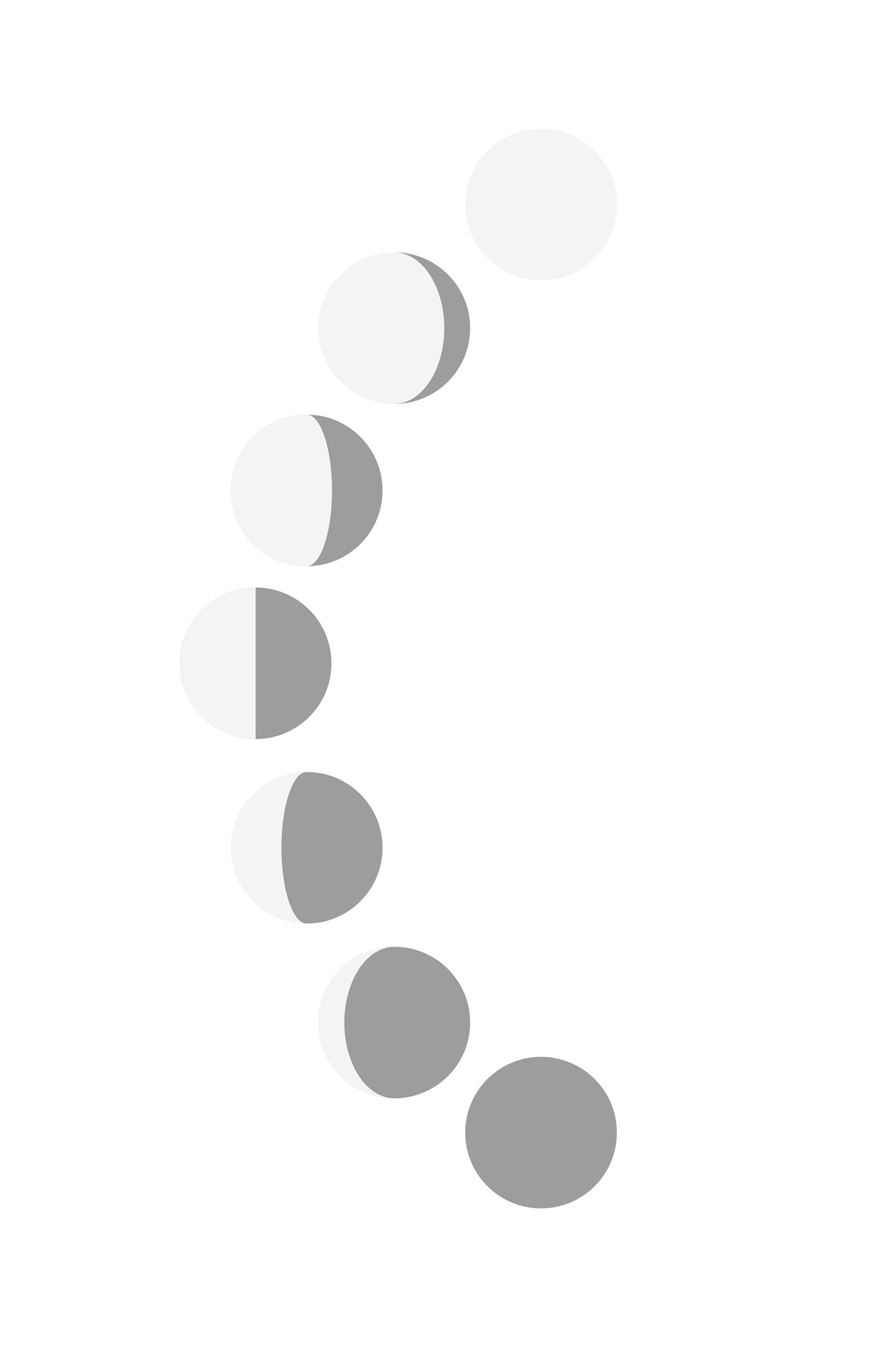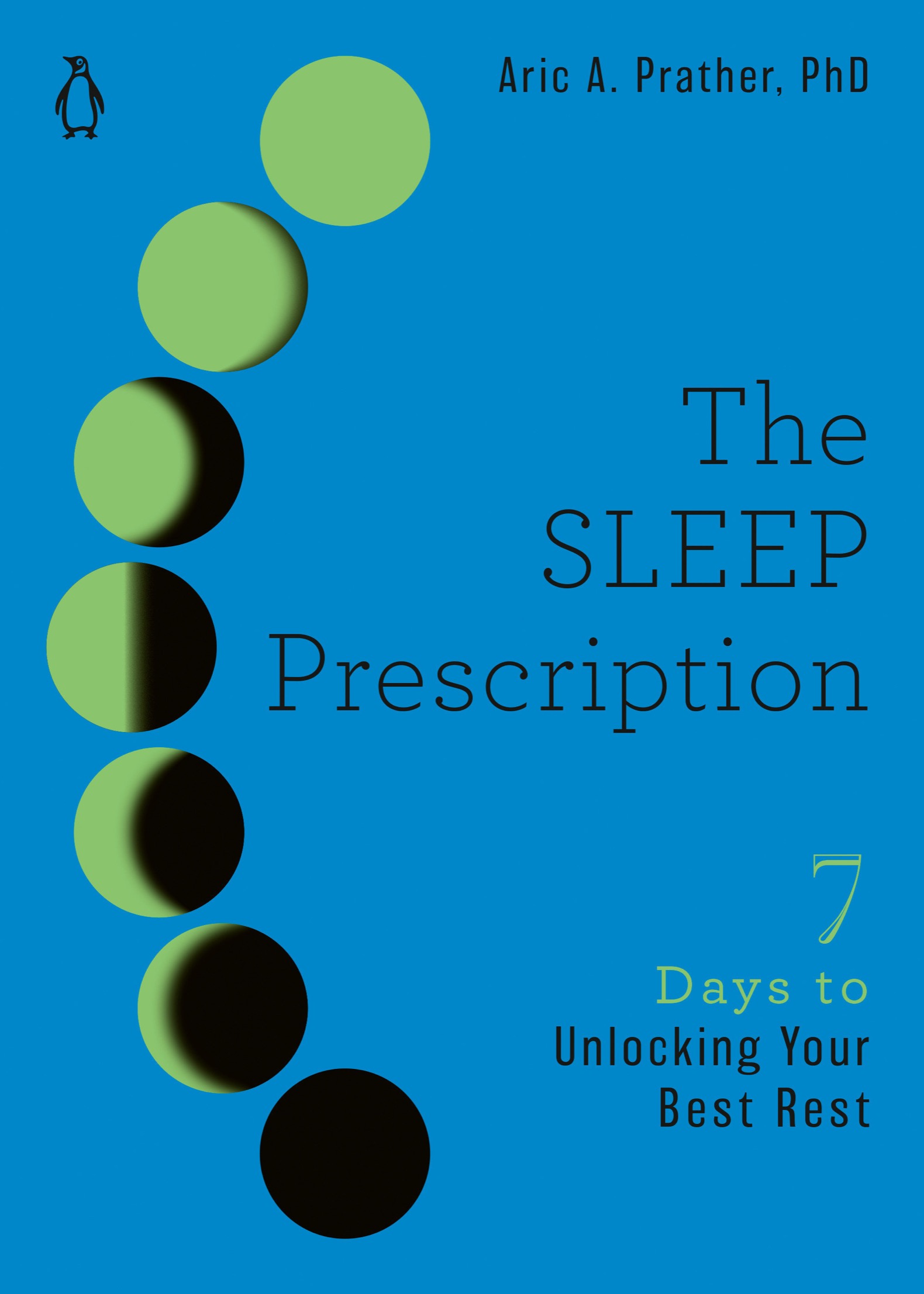
Praise for Dr. Aric A. Prather and The Sleep Prescription
The vastly knowledgeable and genuinely brilliant Dr. Aric Prather can take detailed scientific concepts and distill them into wondrous bite-size chunks, digestible to all. An easy yet most effective how-to guide on sleep.
Dr. Matthew Walker, New York Times bestselling author of Why We Sleep and director of the Center for Human Sleep Science, University of California, Berkeley
Deceptively simple and refreshingly straightforward, The Sleep Prescription is an immediately useful guide to getting better sleep. Aric Prather is an internationally-recognized scientific authority on sleep health and his advice can help just about anyone sleep more restfully in just a week.
Dr. Michael Grandner, director of the Sleep and Health Research Program, University of Arizona College of Medicine
The Sleep Prescription is a practical guide to improving your sleep and enhancing your life. Prather offers a set of transformative and doable changes in sleep habits that can make you healthier, happier, and more productive.
Tom Boyce, MD, author of The Orchid and the Dandelion
The Sleep Prescription is a game changer. Its an original and effective take on how we sleep and why so many of us struggle to do it well. A must-have for anyone looking to improve their waking life by fixing their sleeping one.
Dr. Sara Mednick, author of The Power of the Downstate and Take a Nap! Change Your Life.
Through a series of seven sensible steps, Dr. Prather guides us to relearn what our bodies and brains already know: we can use our voluntary, waking behaviors to influence the involuntary, restorative process of sleep.
Dr. Daniel Buysse, director of the Center for Sleep and Circadian Science, University of Pittsburgh School of Medicine
PENGUIN LIFE
THE SLEEP PRESCRIPTION
Aric A. Prather, PhD, is a professor of psychiatry and behavioral sciences at the University of California, San Francisco, where he codirects the Aging, Metabolism, and Emotions Center. He is also a licensed clinical psychologist who helps lead the UCSF Insomnia Clinic where he practices cognitive behavioral therapy to treat patients with insomnia. He directs a robust research program focused on the causes and consequences of insufficient sleep, which has been continuously funded by the National Institutes of Health. A self-proclaimed sleep evangelist, Dr. Prather has dedicated his career to raising awareness about the importance of sleep health, and to advocate for sleep opportunity as a basic human right.
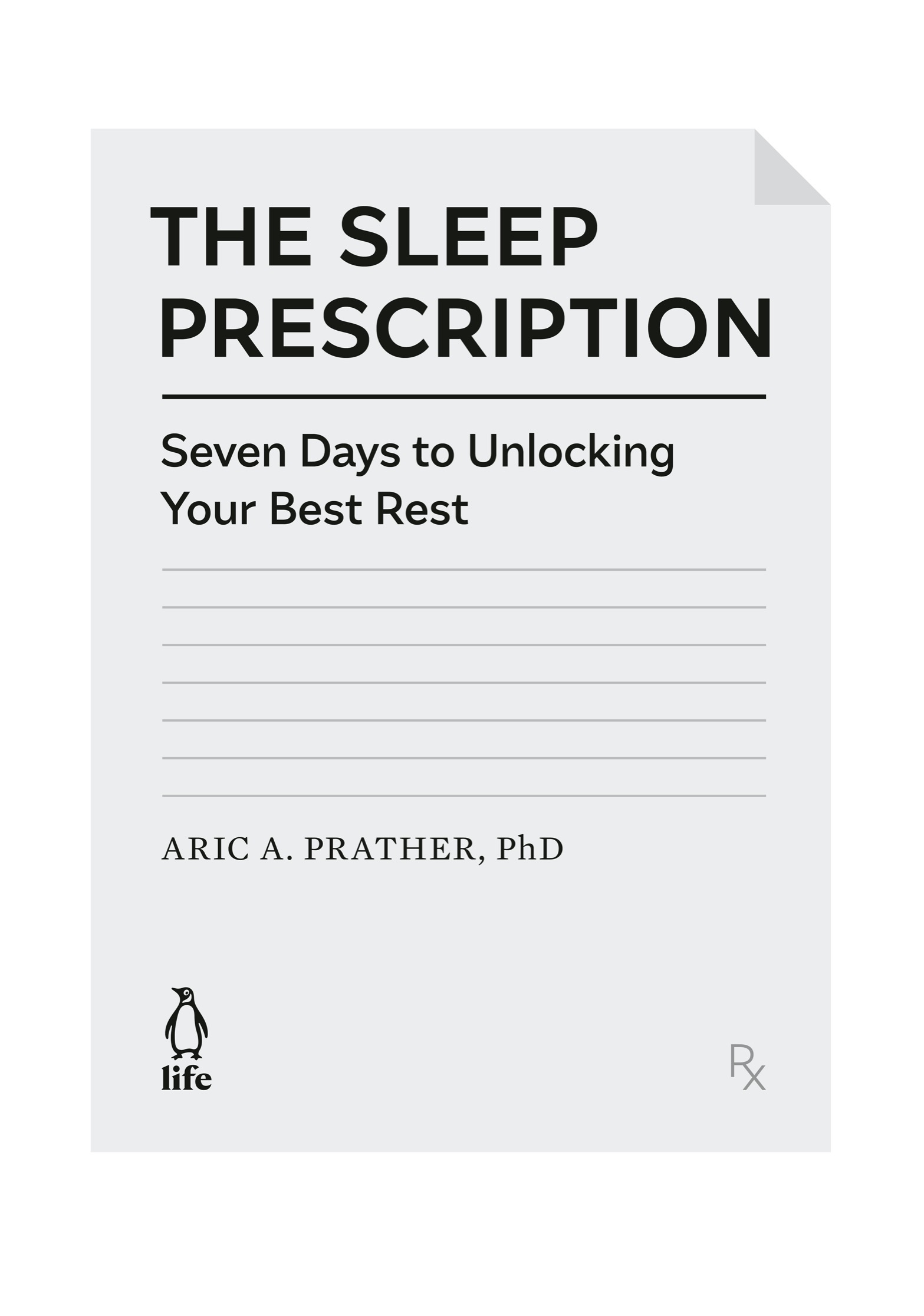
PENGUIN BOOKS
An imprint of Penguin Random House LLC
penguinrandomhouse.com
Copyright 2022 by Aric Prather
Penguin Random House supports copyright. Copyright fuels creativity, encourages diverse voices, promotes free speech, and creates a vibrant culture. Thank you for buying an authorized edition of this book and for complying with copyright laws by not reproducing, scanning, or distributing any part of it in any form without permission. You are supporting writers and allowing Penguin Random House to continue to publish books for every reader.
A Penguin Life Book
library of congress cataloging-in-publication data
Names: Prather, Aric, author.
Title: The sleep prescription : seven days to unlocking your best rest / Aric Prather, PhD.
Description: New York : Penguin Books, [2022] | Includes bibliographical references.
Identifiers: LCCN 2022016514 (print) | LCCN 2022016515 (ebook) | ISBN 9780143136651 (trade paperback) | ISBN 9780525508151 (ebook)
Subjects: LCSH: Sleep. | SleepHealth aspects. | Sleep disordersAlternative treatment.
Classification: LCC RA786 .P73 2022 (print) | LCC RA786 (ebook) | DDC 612.8/21dc23/eng/20220628
LC record available at https://lccn.loc.gov/2022016514
LC ebook record available at https://lccn.loc.gov/2022016515
Cover design by Luke Bird
Book design by Daniel Lagin, adapted for ebook by Cora Wigen
Some names and identifying characteristics have been changed to protect the privacy of the individuals involved.
Neither the publisher nor the author is engaged in rendering professional advice or services to the individual reader. The ideas, procedures, and suggestions contained in this book are not intended as a substitute for consulting with your physician. All matters regarding your health require medical supervision. Neither the author nor the publisher shall be liable or responsible for any loss or damage allegedly arising from any information or suggestion in this book.
pid_prh_6.0_141685110_c0_r0
This book is dedicated to my wife, Michelle, and my two boys, Spencer and Jackson. You may disturb my sleep at times, but you also give me the confidence to dream.
CONTENTS
INTRODUCTION
YOU WERE BUILT TO SLEEP
A few years ago, just after my younger son was born, I spent a long night holding him as he slept on my chest. He was just a couple weeks old, still so small he could fit inside my two palms. Like any new parent in that situation, I was exhaustedmy eyes felt sandy, and I could barely keep them open. Meanwhile, he was deeply asleep, his slow, rhythmic baby breath whooshing in my ear. I knew though that the minute I tried to slowly (excruciatingly slowly!) lay him down, hed pop awake and start shrieking in protest. So I muscled my eyes open and held him a little longer. As a sleep scientist, I knew what sleep was doing for him and for his little developing brain: Consolidating memories. Building new neural synapses. Washing away the byproducts of daytime brain processes with a cleansing flush of cerebrospinal fluid. Lowering his blood pressure to relax his little nervous system. Releasing human growth hormone throughout the body, which promotes healing, regeneration, and growth.
It wasnt the first night Id spent holding a kid through the wee hours when all I wanted was to be asleep myself, and it wouldnt be the last. But that night I found myself thinking a lot about how much work sleep can be. In our sleep clinic at the University of California, San Francisco (UCSF), we have (metaphorically, at least) a line out the door of people needing help with their sleep. For many, sleep is tricky and elusiveits a source of stress and anxiety, rather than relaxation and restoration. For some, it feels like a skill they never quite had a grasp on, a lifetime of being a bad sleeper. For others, its a skill that has vanished suddenly, with no explanationwhere did it go?
Like eating, drinking, and breathing, we need to sleep to survive. If we stopped sleeping, we would die. Sure, it would take a while, but sleep is just as much an essential, life-supporting process as those other thingslike food, water, and oxygen. Eventually, without it, our bodies begin to shut down. So why on earth can something that should be so natural, instinctual, and automatic be so hard?
I study sleep for a living, and Ill tell you right off the bat that theres usually one major thing that gets in the way of sleep: you.
I dont mean just you. I mean all of us. Were great at getting in the way of our own sleep. We dont mean to. And were not making obviously bad choices. In the sleep clinic, my colleagues and I treat hundreds of patients per year who are struggling to achieve good sleep. By the time they come to us, theyve tried everything. Theyve done the usual sleep hygiene stuff, like making their sleeping space calming and dark and cool. Theyve tried medications. Theyve often been referred by doctors or therapists. For many, sleep has become so loaded with difficulty that

